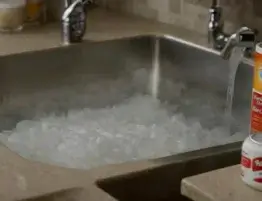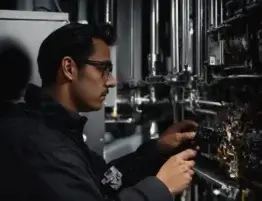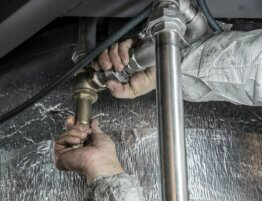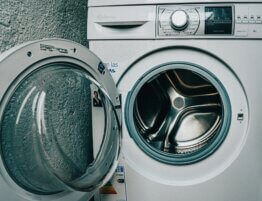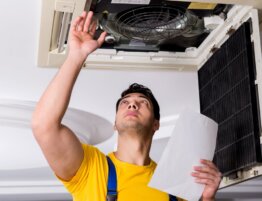
According to the National Energy Assistance Directors Association, home heating prices have surged by about 18% this winter compared to last winter. This comes just a year after home heating prices surged by 17% over the previous year.
Because of this, there are many people who are making the difficult decision to either turn the heat in their homes way down or, worse, not use their heat at all. Before you do this, you should know that heating your home doesn’t have to break the bank.
There are some home heating tips you can use to warm your house up without causing your energy bills to skyrocket. By creating a more energy-efficient home, you’ll be able to make your house comfortable while keeping your expenses to a minimum.
Here are seven home heating tips you should start using today.
1. Prepare Your Heating System for Winter
It’s probably too late in the season to have your home’s heating system serviced now. But generally speaking, you should try to schedule service for your heating system at the end of the fall each year.
An HVAC company can inspect your home’s heating system to make sure it’s ready to go when the temperatures drop. They can clean the inside of your heating system, replace any worn-out parts, and recommend other repairs you might want to take on.
If you don’t do anything else, doing this will improve your home heating efficiency by leaps and bounds.
2. Replace Your Furnace Filter Regularly
There is a furnace filter in your heating system that’s designed to clean all the air that passes through it. Over time, this furnace filter can get to be very dirty, and it’ll put a big strain on your heating system if you let it.
At least once every three months, you should replace your furnace filter. It’ll only take a minute to do it, but it’ll work wonders for the efficiency of your heating system as a whole.
Be sure to replace your furnace filter at the start of every winter and write down when you do it. It’ll help you keep track of when you’ll need to replace it again.
3. Seal Drafty Windows and Doors
When it begins to get cold outside, it would be worth walking around the inside of your home and standing near each window and door to see if you feel a draft. If you do, it’s going to take a toll on your home’s energy efficiency if you let it.
You should seal up any drafty windows and doors so that they don’t allow air from outside to get inside with ease. This air won’t be able to force your heating system to have to work harder than it should have to anymore.
If you have older windows and doors in your home, you might even want to think about going as far as to replace them. This will require a sizable investment on your part. But new windows and doors might pay for themselves by keeping your home heating costs down.
4. Reverse Your Ceiling Fans
Did you know your home’s ceiling fans should be set to spin in different directions depending on what time of the year it is? Well, now you do!
In the winter, you’ll want to have your ceiling fans spinning clockwise. You’ll also want to have them spin at a relatively low speed compared to how you have them spinning in the summer.
Warm air in your home is going to tend to rise. But when you have ceiling fans set to spin clockwise, it’ll knock warm air back down and keep your whole house warm.
5. Invest in a Humidifier
In the summertime, your HVAC system is going to work hard to eliminate as much humidity as it can. This humidity is going to make your home feel too warm if you allow it to.
But in the wintertime, you’re going to want to increase the humidity levels in your home if you can. One simple way to do this is by investing in a humidifier and running it in any rooms that are on the colder side. It’ll help to heat them right up.
6. Set Your Thermostat to the Right Temperature
If the inside of your home is cold, cranking your heat up to 80 degrees Fahrenheit will definitely do the trick when it comes to heating it up. It’ll be warm in your home in no time, but you’ll also see your energy bills soar if you keep it that warm all the time.
Instead, you should try to get used to living in a home that has a thermostat set to about 68 degrees Fahrenheit. You can increase it just a little when it’s especially cold out. But you should try not to increase it to anything higher than 70 degrees Fahrenheit since that’s going to have your heating system running all the time and increase your energy costs.
7. Make Heating System Repairs ASAP
If you ever get the sense something might be wrong with your home’s heating system, you shouldn’t hesitate to reach out to an HVAC company for help. They can visit your home and make the necessary repairs right away.
These repairs will come at a cost. But you might pay an even higher price if you don’t fix the issues that are going on. They could cause your heating system to have to strain more, and that could increase your energy costs while also putting your system at risk of needing other more serious repairs.
Start Putting These Home Heating Tips to Good Use
You shouldn’t have to spend a small fortune to heat your home in the winter. These home heating tips should put you in a much better spot when it’s cold outside.
My Guys Plumbing, Heating & Air, Inc. is also always here to help if you need more home heating advice or heating services carried out in your home. We can provide you with a more energy-efficient home by servicing and repairing your heating system.
Contact us today for all your home heating needs in Beachwood, Lyndhurst, Bedford, Solon, Oakwood, Macedonia, Beachwood, Bentleyville, and many of the surrounding areas in Ohio.


